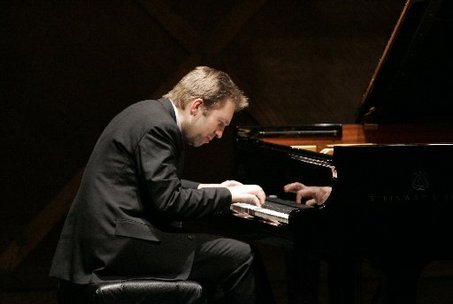Andsnes recital offers a mixed bag of Beethoven and Brahms

Following his memorable account of the Brahms Second Piano Concerto with the Chicago Symphony in February, Leif Ove Andsnes returned to Orchestra Hall Sunday afternoon for a recital that bookended music of Brahms and Schoenberg with a pair of middle- and late-period Beethoven sonatas.
If the Hammerklavier is the Mount Everest of Beethoven’s 32 piano sonatas, his final work in the genre, the Sonata in C minor, Op. 111—while less massively virtuosic—is just as challenging interpretively with its dramatic opening movement and vast set of concluding variations.
Andsnes showed he has the technical command and feeling for the scale and architecture of this music, with an opening movement deftly balancing fire and elegance. In the ensuing Arietta, Andsnes brought a searching quality and sensitivity to Beethoven’s wide-ranging variations. I would have preferred a greater sense of mystery and more emotional depth in this deeply introspective music, but this was by any account an admirable performance of tortuously difficult music to put across.
The Sonata was prefaced by Schoenberg’s Six Little Piano Pieces, Op. 19. These atomistic miniatures, most less than a minute, point the way forward for his student, Anton Webern, and Andsnes’s finely chiseled playing gave these varied, fascinating works the finest playing of the afternoon in all their delicacy and hectic angularity.
Less successful was Andsnes’ Brahms. His account of the Op. 10 Ballades traced the brooding Scottish drama of “Edgar” (No. 1) and the more straightforward drive of No. 3 was notably done. But otherwise the Norwegian pianist’s playing was surprisingly prosaic, with these deep and introspective works largely all on the surface, wanting in expressive point and straitened in dynamics and coloring.
The concert opened with Beethoven’s Waldstein Sonata. Here, too Andsnes’ Beethoven was less convincing–fluent and polished but lacking an essential weight and explosive quality, with the composer’s rough edges a bit too smoothed over.
The finale went best with a magical stealing in of the radiant main theme, much appropriated by others (including 70s rocker Greg Lake in his Father Christmas). The fireworks of the finale were capably assayed, but as in Op. 111, one couldn’t help the nagging feeling that we were only getting half the story.
Encores included Kurtag’s “Scraps of a colinda melody- faintly recollected” from Játékok, Chopin’s Waltz in A-flat Major, Op. 42 and Schumann’s Romance in F-sharp Major, No. 2, Op. 28.
Posted in Performances




